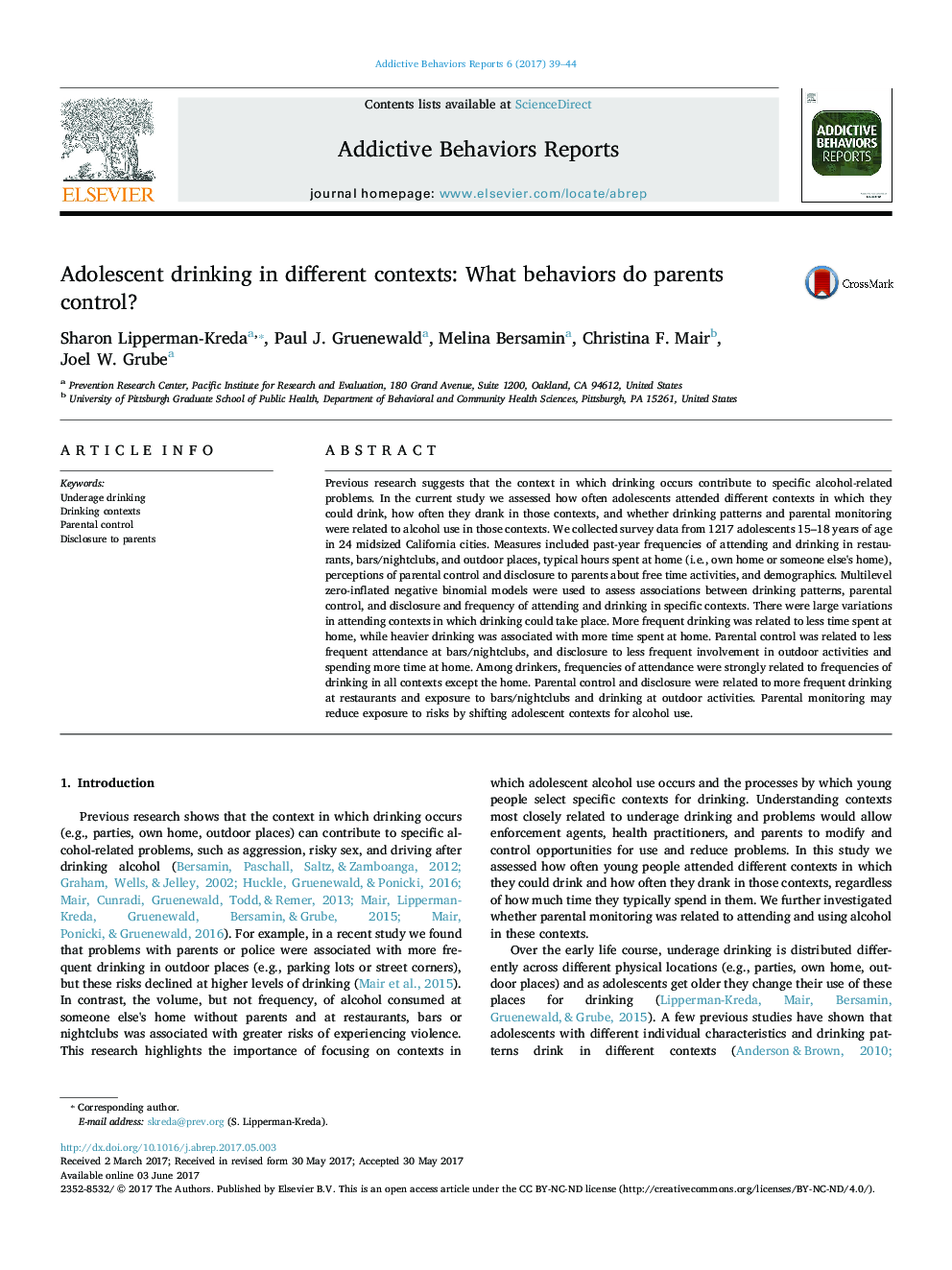| Article ID | Journal | Published Year | Pages | File Type |
|---|---|---|---|---|
| 5037931 | Addictive Behaviors Reports | 2017 | 6 Pages |
â¢Frequent drinkers tended to spend less time at home, whereas heavier drinkers tended to spend more time at home.â¢Frequent drinkers were more likely to drink in outdoor places and homes.â¢Frequencies of attendance were strongly related to frequencies of drinking in all contexts except the home.â¢Parental control and disclosure contributed differently to where youths go as well as to their drinking in these contexts.
Previous research suggests that the context in which drinking occurs contribute to specific alcohol-related problems. In the current study we assessed how often adolescents attended different contexts in which they could drink, how often they drank in those contexts, and whether drinking patterns and parental monitoring were related to alcohol use in those contexts. We collected survey data from 1217 adolescents 15-18Â years of age in 24 midsized California cities. Measures included past-year frequencies of attending and drinking in restaurants, bars/nightclubs, and outdoor places, typical hours spent at home (i.e., own home or someone else's home), perceptions of parental control and disclosure to parents about free time activities, and demographics. Multilevel zero-inflated negative binomial models were used to assess associations between drinking patterns, parental control, and disclosure and frequency of attending and drinking in specific contexts. There were large variations in attending contexts in which drinking could take place. More frequent drinking was related to less time spent at home, while heavier drinking was associated with more time spent at home. Parental control was related to less frequent attendance at bars/nightclubs, and disclosure to less frequent involvement in outdoor activities and spending more time at home. Among drinkers, frequencies of attendance were strongly related to frequencies of drinking in all contexts except the home. Parental control and disclosure were related to more frequent drinking at restaurants and exposure to bars/nightclubs and drinking at outdoor activities. Parental monitoring may reduce exposure to risks by shifting adolescent contexts for alcohol use.
